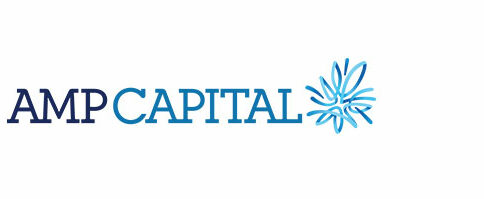
InvestNow News – 16th October – AMP Capital – Positive shift in the responsible investment landscape
Article written by Rebekah Swan, AMP Capital – 21st September 2020
I always look forward to the launch of the annual Responsible Investment Benchmark report in New Zealand and seeing how the country is progressing on its responsible investment journey. The report is produced by the Responsible Investment Association of Australasia (RIAA) each year and provides a unique snapshot of the responsible investment sector in New Zealand. Over time it’s been encouraging to see the industry mature and the growing investor awareness and interest in investing responsibly.
The early responsible investment movement was predominantly based on negative screening, but one of the key findings of the 2020 report is that, for the first time, New Zealand responsible investment managers now favour ESG integration above negative screening as their primary responsible investment strategy. This is a positive development as responsible investors shift their focus from screening out harmful industries such as tobacco and armaments to considering broader environmental, social and corporate governance factors when investing.
That said, exclusions remain a part of the responsible investment process, with traditional categories such as weapons, tobacco and pornography the most frequently screened categories. However, it was interesting to see an increase in other issues such as animal cruelty, environmental degradation, human rights abuses and pesticides now being screened. There was also a significant increase in screening for exposure to fossil fuels, reflecting the increasing importance of this exclusionary screen for consumers.
“I was particularly pleased to see that the survey results show a growing trend towards more proactive corporate engagement and shareholder action. It is clear that investment managers are increasingly using their power as shareholders to influence corporate behaviour and make a positive impact.”
This aligns with what we at AMP Capital have been doing for some time; engaging with companies to ensure they are managing their ESG risks and realising potential opportunities to create long-term sustainable value.
To find out more about what’s happening with responsible investing in New Zealand you can read the full Responsible Investment Benchmark Report 2020 here.
Also this week, was an announcement by the Government that it will require the financial sector to report on climate change risks. Once again we are leading the world, with New Zealand the first country to introduce a mandatory climate-related financial disclosure regime. It will ensure the disclosure of climate risk is clear, comprehensive and transparent, and help New Zealand to deliver upon its commitment to the Paris agreement and Sustainable Development Goals (SDGs). In November the Sustainable Finance Forum will release its final report and roadmap for action so more details on the disclosure and reporting requirements will be out then.
While the new mandatory disclosure regime will place a further reporting onus on the financial sector in New Zealand, it is overwhelmingly the direction global financial markets are heading. I support the change as it will help investors, shareholder and companies make more informed decisions, and will also ensure the market has the information it needs to allocate investments in a way that contributes to a low-emissions, climate-resilient economy.
AMP Capital is already committed to reporting on our activities and progress towards incorporating ESG issues, including climate change, into our investment decision-making. As a signatory to the Principles for Responsible Investment (PRI), we are required to report on our responsible investment activities annually and are assessed against a range of indicators. This provides regular feedback on our performance and a way of measuring progress against an industry standard. Our latest PRI assessment report shows we continue to score highly across the various assessment modules and are ahead of the median results of our peers. Its pleasing to see this year we have maintained our A+ and improved our score in listed equities. For further details you can view a copy of AMP Capital’s 2020 PRI summary report here.
Important notes
This blog post has been prepared to provide general information and does not constitute ‘financial advice’ for the purposes of the Financial Advisors Act 2008 (Act). An individual investor should, before making any investment decisions, consider the information available in the relevant Product Disclosure Statement and seek professional advice. While every care has been taken in the preparation of this document, AMP Capital Investors (New Zealand) Limited and the AMP Group (together, ‘AMP’) make no guarantee that the information supplied is accurate, complete or timely and do not make any warranties or representations in respect of results gained from its use. The information is not intended to infer that current or past returns are indicative of future returns. The views expressed are those of the author and do not necessarily reflect those of AMP. These views are subject to change depending on market conditions and other factors.
InvestNow News – 16th October – AMP Capital – Positive shift in the responsible investment landscape
Article written by Rebekah Swan, AMP Capital – 21st September 2020
I always look forward to the launch of the annual Responsible Investment Benchmark report in New Zealand and seeing how the country is progressing on its responsible investment journey. The report is produced by the Responsible Investment Association of Australasia (RIAA) each year and provides a unique snapshot of the responsible investment sector in New Zealand. Over time it’s been encouraging to see the industry mature and the growing investor awareness and interest in investing responsibly.
The early responsible investment movement was predominantly based on negative screening, but one of the key findings of the 2020 report is that, for the first time, New Zealand responsible investment managers now favour ESG integration above negative screening as their primary responsible investment strategy. This is a positive development as responsible investors shift their focus from screening out harmful industries such as tobacco and armaments to considering broader environmental, social and corporate governance factors when investing.
That said, exclusions remain a part of the responsible investment process, with traditional categories such as weapons, tobacco and pornography the most frequently screened categories. However, it was interesting to see an increase in other issues such as animal cruelty, environmental degradation, human rights abuses and pesticides now being screened. There was also a significant increase in screening for exposure to fossil fuels, reflecting the increasing importance of this exclusionary screen for consumers.
“I was particularly pleased to see that the survey results show a growing trend towards more proactive corporate engagement and shareholder action. It is clear that investment managers are increasingly using their power as shareholders to influence corporate behaviour and make a positive impact.”
This aligns with what we at AMP Capital have been doing for some time; engaging with companies to ensure they are managing their ESG risks and realising potential opportunities to create long-term sustainable value.
To find out more about what’s happening with responsible investing in New Zealand you can read the full Responsible Investment Benchmark Report 2020 here.
Also this week, was an announcement by the Government that it will require the financial sector to report on climate change risks. Once again we are leading the world, with New Zealand the first country to introduce a mandatory climate-related financial disclosure regime. It will ensure the disclosure of climate risk is clear, comprehensive and transparent, and help New Zealand to deliver upon its commitment to the Paris agreement and Sustainable Development Goals (SDGs). In November the Sustainable Finance Forum will release its final report and roadmap for action so more details on the disclosure and reporting requirements will be out then.
While the new mandatory disclosure regime will place a further reporting onus on the financial sector in New Zealand, it is overwhelmingly the direction global financial markets are heading. I support the change as it will help investors, shareholder and companies make more informed decisions, and will also ensure the market has the information it needs to allocate investments in a way that contributes to a low-emissions, climate-resilient economy.
AMP Capital is already committed to reporting on our activities and progress towards incorporating ESG issues, including climate change, into our investment decision-making. As a signatory to the Principles for Responsible Investment (PRI), we are required to report on our responsible investment activities annually and are assessed against a range of indicators. This provides regular feedback on our performance and a way of measuring progress against an industry standard. Our latest PRI assessment report shows we continue to score highly across the various assessment modules and are ahead of the median results of our peers. Its pleasing to see this year we have maintained our A+ and improved our score in listed equities. For further details you can view a copy of AMP Capital’s 2020 PRI summary report here.
Important notes
This blog post has been prepared to provide general information and does not constitute ‘financial advice’ for the purposes of the Financial Advisors Act 2008 (Act). An individual investor should, before making any investment decisions, consider the information available in the relevant Product Disclosure Statement and seek professional advice. While every care has been taken in the preparation of this document, AMP Capital Investors (New Zealand) Limited and the AMP Group (together, ‘AMP’) make no guarantee that the information supplied is accurate, complete or timely and do not make any warranties or representations in respect of results gained from its use. The information is not intended to infer that current or past returns are indicative of future returns. The views expressed are those of the author and do not necessarily reflect those of AMP. These views are subject to change depending on market conditions and other factors.



